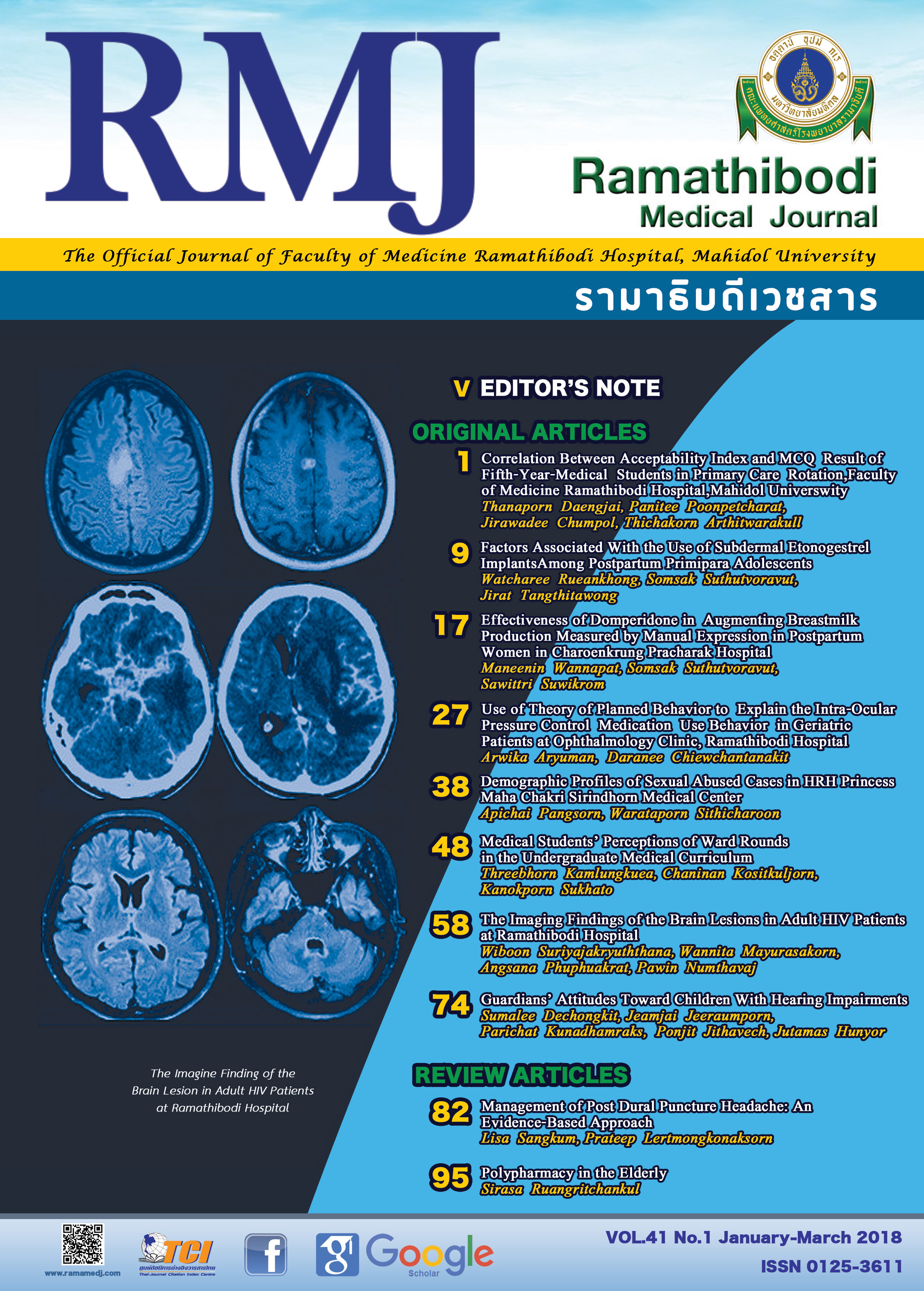Correlation Between Acceptability Index and MCQ Result of Fifth-Year-Medical Students in Primary Care Rotation, Faculty of Medicine Ramathibodi Hospital, Mahidol University
DOI:
https://doi.org/10.14456/rmj.2018.1Keywords:
Item analysis, Acceptability index, การวิเคราะห์ข้อสอบ, ค่าความยากง่ายของข้อสอบAbstract
Background: Department of Family Medicine, Faculty of Medicine Ramathibodi Hospital, Mahidol University has an aim to create and produce standardized tests for student assessment in terms of medical knowledge and skill. Acceptability index (AI) of a test affects grading results. The examiner should set appropriate AI for validity of grading.
Objective: This descriptive research aim to identify correlation between AI and Difficulty index (P) of multiple choice question (MCQ) exam results of fifth-year medical students. This is to find and develop appropriate AI for grading.
Methods: One hundred and seventy-eight exam results of fifth-year medical students in Primary Care 2 rotation, Faculty of Medicine Ramathibodi Hospital, Thailand in year 2015 were selected to find the correlation between AI and P of MCQ exam results. Data analysis was undertaken using SPSS version 18, descriptive statistics.
Results: The findings indicate that there were 4 sets of MCQ, 237 items in total. Sixty-two items (26.16%) had correlation between AI and P but 175 items (73.84%) had not. The analysis by Pearson’s product moment correlation coefficient found that the only one set of all four MCQ sets had a positive correlation between AI and P with statistically significant at P ≤ 0.01 and had a high level of the discrimination power (r = 0.44). The others of MCQ set had no correlation between AI and P and level of discrimination power were low.
Conclusions: The evidence showed that the most AI of the exams had low correlation with P. It lead to improve item analysis process.
References
Sunthornthai W. Item analysis of examination for quality assurance. BU Academic Review. 2009;8(1):58-74.
Suwannarat O. Item analysis in course management. Songkla Med J. 2009;27(5):381-388.
Lekhakula A. Multiple choice question. PSU Medical Education Resources, Prince of Songkla University. https://teachingresources.psu.ac.th/document/2548/Le_Kha_Kun/MCQ_Arnupa.pdf. Accessed March 10, 2018.
Buppasiri P. Group-based or benchmarking evaluation: It's time to review or not. Medical education Faculty of Medicine, Khon Kaen University; 2010. https://meded.kku.ac.th/upload_new/pdf/Fri102746yjIMR2y.pdf. Accessed March 10, 2018.
Faculty of Nursing, Chiang Mai University. Statistics and analysis of health information. https://intraserver.nurse.cmu.ac.th/mis/download/course/lec_567730_lesson_07.pdf. Accessed March 10, 2018.
Hinkle DE, Wiersma W, Jurs SG. Applied Statistics for the Behavioral Sciences, 4th ed. Boston, Houghton Mifflin Company; 1998:118.

















